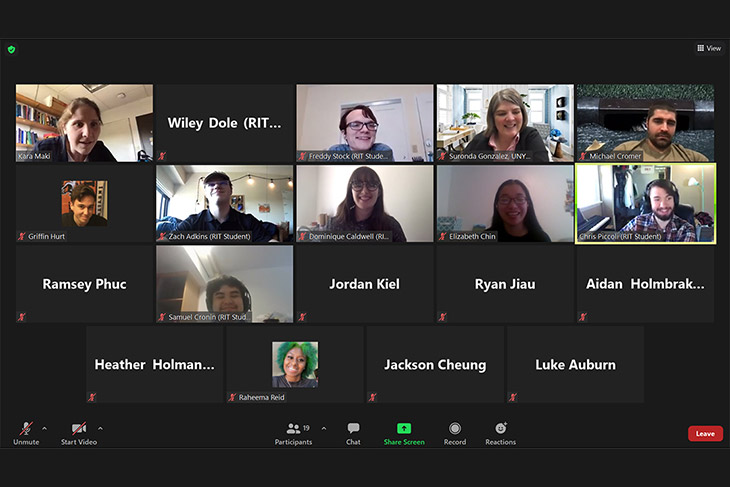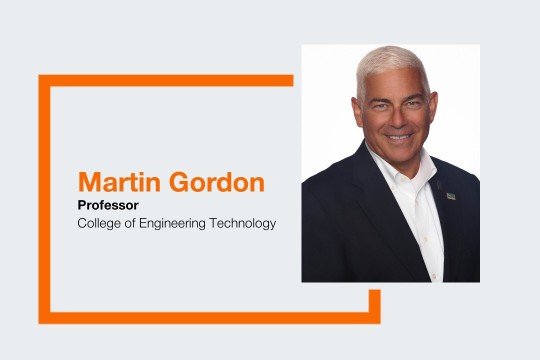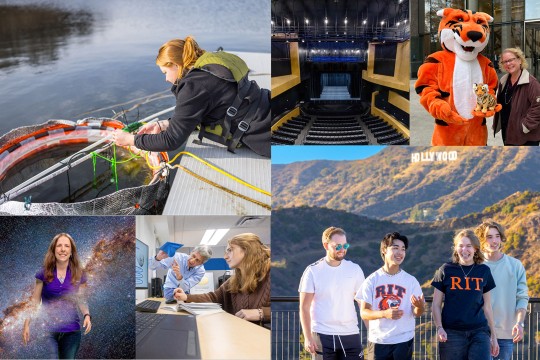RIT seniors use mathematical modeling to explore COVID-19 questions for policymakers
Students taking the Senior Capstone in Math were tasked with analyzing coronavirus policy this spring
Fifteen seniors who took the Senior Capstone in Math course this spring put their modeling skills to the test to help officials evaluate past coronavirus policies and predict future outcomes. At the end of the semester, the students presented the results to their clients, Jennifer Schneider, the Eugene H. Fram Chair of Applied Critical Thinking and a professor in the Department of Civil Engineering Technology, Environmental Management and Safety, and Suronda Gonzalez, executive director of Upstate New York College Collaboration.
Mathematical modeling has been a powerful tool for policymakers grappling with COVID-19 to help predict how targeted actions can impact the rates of infections, minimize the risk of exposures, increase recovery rates, and much more. Fifteen seniors who took the Senior Capstone in Math course this spring put their modeling skills to the test to help officials evaluate past policies and predict future outcomes.
The class was taught by Associate Professor Kara Maki and Associate Professor Michael Cromer, but the School of Mathematical Sciences faculty also brought in outside experts to help guide the work. Jennifer Schneider, the Eugene H. Fram Chair of Applied Critical Thinking and a professor in the Department of Civil Engineering Technology, Environmental Management and Safety, and Suronda Gonzalez, executive director of Upstate New York College Collaboration, served as clients for the semester.
Both clients have been advising universities on COVID-19 policies and asked the students to look at three central problems: what conclusions can be drawn from past experiences; how can colleges and universities prepare for the fall semester; and how does COVID impact the community? Using the SEIR epidemic model, which is commonly used to predict how many people are susceptible to, exposed to, infected by, and recovered from viral epidemics, the students dug into the issues and presented their findings at the end of the semester to the clients.
“The students did spectacular work and I’m very pleased,” said Schneider, who leads the Collaboratory for Resiliency and Recovery. “These were tough questions and it can be challenging to get data to fit together, but they’ve come up with some really interesting results. Every policy is a tradeoff, but they did good work to help analyze the benefits and costs.”
One group examined unemployment caused by COVID-19. The group noted that usually when unemployment rises, wages decline, which causes demand to drop. This in turn causes companies to lose profits and the entire chain has a compounding effect that results in more unemployment. But interestingly, they found that unemployment caused by the pandemic did not create a snowball effect, which the group believed could be because the government artificially increased personal income with things like stimulus checks or subsided costs for companies through initiatives like the Paycheck Protection Program.
Jordan Kiel, a third-year computational mathematics student from Mount Prospect, Ill., was part of that group and said he enjoyed working for the clients and leveraging their expertise to solve a practical problem.
“They have a different knowledge set than we do, especially since they’ve been working on COVID-related things for a lot longer,” said Kiel. “It was really nice because they’re COVID-experienced, they could tell us about little things to look for.”
Chris Piccoli, a fourth-year computational mathematics student from Pittsburgh, Pa., worked on a project that examined what policies had the greatest effect on limiting the spread of COVID-19. He said that in addition to sharpening his math modeling abilities, the project pushed him to improve his coding, communication, and leadership skills. But he joked that he gained some knowledge that he hopes he does not have to apply in the future.
“I now know all of this stuff about a horrible event that happened and I hope I never have to use it again,” said Piccoli.






